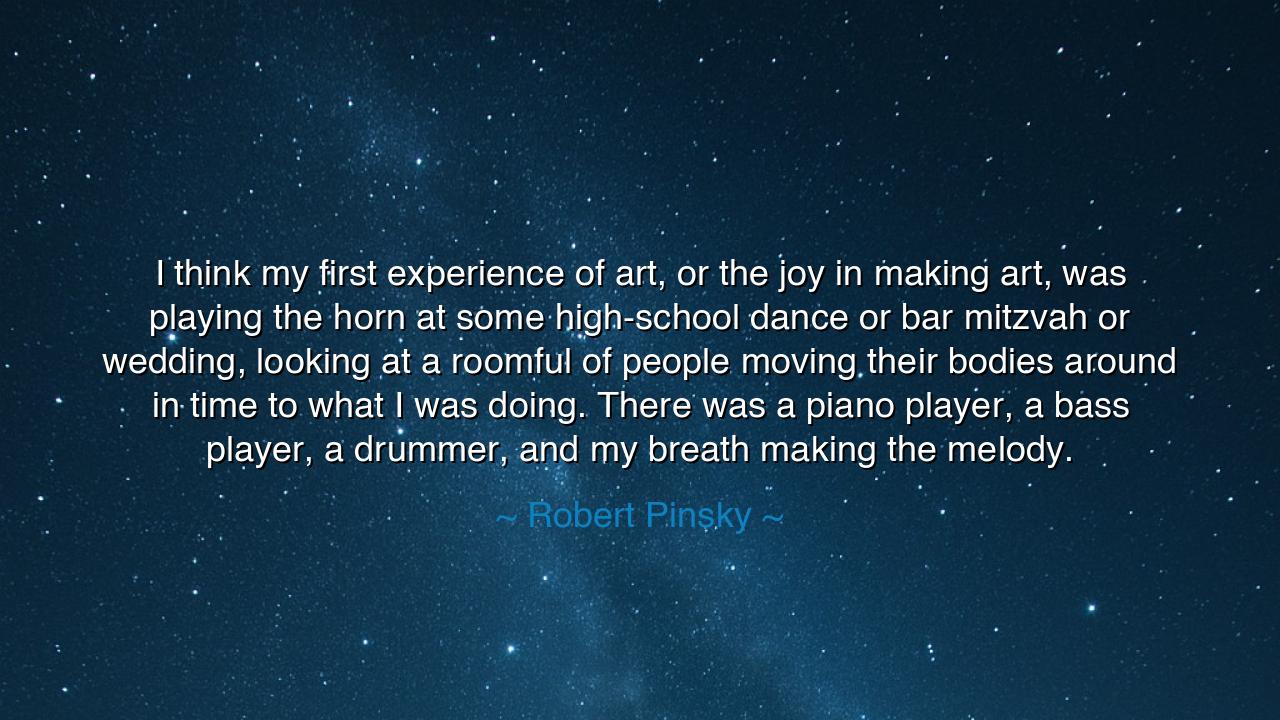
I think my first experience of art, or the joy in making art
I think my first experience of art, or the joy in making art, was playing the horn at some high-school dance or bar mitzvah or wedding, looking at a roomful of people moving their bodies around in time to what I was doing. There was a piano player, a bass player, a drummer, and my breath making the melody.






In the words of Robert Pinsky—“I think my first experience of art, or the joy in making art, was playing the horn at some high-school dance or bar mitzvah or wedding, looking at a roomful of people moving their bodies around in time to what I was doing. There was a piano player, a bass player, a drummer, and my breath making the melody.”—there shines the revelation of what art truly is: not a solitary act of creation, but a communion, a current flowing from one soul into many. He speaks of the horn, of breath made music, shaping the movement of others; and in that moment, he discovered the power of art to animate the world.
The ancients knew well this sacred bond. The Greeks honored Apollo and the Muses, not because art belonged to the artist alone, but because it was a divine gift that stirred the hearts of all who heard. Pinsky’s horn, like Orpheus’s lyre, drew bodies into harmony, binding strangers in rhythm. In such moments, the individual is no longer alone, for his breath, joined with the instruments of others, becomes a force larger than himself—an echo of the eternal harmony the ancients called the music of the spheres.
There is also humility in his recollection. His first joy in art did not come in grand halls or beneath laurel crowns, but at simple gatherings—a dance, a bar mitzvah, a wedding. Yet in these humble places, the miracle occurred: his melody reached into the hearts of others and moved their bodies in time. This teaches that art does not need grandeur to be great; it needs only sincerity, shared breath, and the miracle of connection.
History offers its mirror in the tale of David, the shepherd boy who played the harp for King Saul. His simple songs, borne on breath and string, calmed the troubled spirit of the king. David was not yet king himself, but already his art held power greater than the sword. So too with Pinsky: the horn, humble yet true, became his first crown, for it revealed to him that art’s true throne is found in its effect upon others.
Thus, let us learn: the essence of art is not the solitary genius, but the shared rhythm of many lives touched by one act of creation. When the breath of one becomes the movement of many, when sound becomes dance and melody becomes memory, then art has fulfilled its highest calling. Pinsky’s words remind us that art begins not in glory, but in communion—and from such beginnings, its power endures forever.






AAdministratorAdministrator
Welcome, honored guests. Please leave a comment, we will respond soon